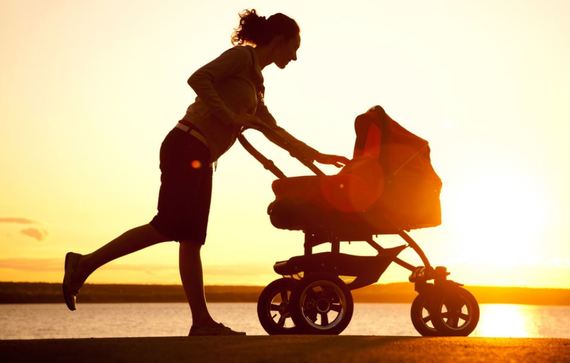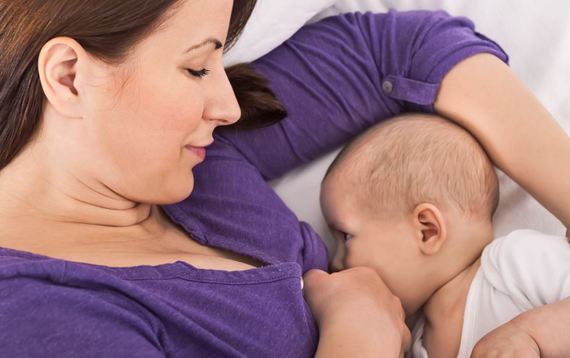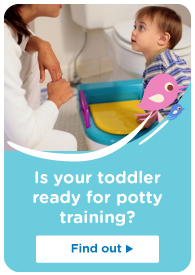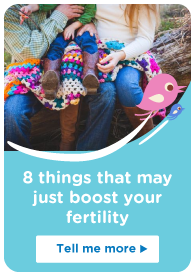Getting back to a healthier you after giving birth
Filed under:
MummyBloggers

The key to getting maximum and effective results from any after-pregnancy diet is to do it healthily and gradually.
It is not recommended that you undertake a strict diet soon after giving birth; moms, especially those who are nursing, need a minimum of 1,500 calories a day to keep their energy levels up, so that they can perform their fit mommy duties at an optimum level.
Losing a pound per week is the safest way to approach an after-delivery diet, without negatively affecting your milk supply. Since exercise is not something you can take on immediately after delivery, you have to attack your postpartum weight loss plan first through proper nutrition.
1. Take time to eat right
Understandably, with a new baby, you will barely have time to compose your next logical thought, much less to sit and eat a proper meal, but it’s important that you make the time to invest in you. You have to be in the best condition to be the best fit mommy.
Eating five to six smaller meals is best – it sounds difficult, but if you prepare your meals ahead of time, it is doable. You must never skip meals in your attempt at an after-pregnancy diet, as this will not only contribute to you retaining the pregnancy weight, but also deplete your energy supply.
Skipping meals also leads to you eating much more than you need to during the next meal and snacking on unhealthy foods. Breakfast is the most important meal of the day, ensure that you take some time to prepare it, so that you can have a good start and set a good pace for the rest of the day. Research shows that chewing slowly also helps you to feel full sooner, you can also drink lots of water to prevent yourself from overeating.

2. Be a picky eater
The best post-pregnancy diet is all about really paying attention to the food you put in your mouth and a really specific plan. Choose the low or reduced fat version of things like milk, yogurt and cheese, but be careful not to choose over-processed foods.
The better choice are whole, organic foods – just eat smaller portions until your body adjusts. Select whole wheat, whole grains and high fiber foods, such as fruits, vegetables and cereals. These help you to stay full and curb desperate hunger pangs where you feel like you could eat a live cow. Non-saturated fats are always better, especially those such as those found in canola oil, olive oil, nuts, and salmon.
Saturated or “bad” fats are found in fried foods, baked goods and snacks – you should stay away from those as much as possible. Other nutrients to consume include lots of protein; and it’s a proven fact that protein fills you up. Good sources of protein are fish, beef, chicken and eggs. You must be careful to select lean cuts of meat to limit your fat intake. You should also limit your consumption of processed foods.
3. Produce the best milk
If you’re breastfeeding, studies have shown that this alone can burn up to 500 calories per day. So the more you breastfeed, the more effective your postpartum weight loss plan will be. Note that your baby is on the same diet as you, so you must produce the best quality breast milk possible. How do you do this? Experts recommend drinking lots of water, eating fiber-rich foods, no alcohol, and adding an additional 500 calories of nutritious food to your after delivery diet.

4. Know the ABCs of vitamins
A good post-pregnancy diet is one that includes the essential vitamin ABCs. Ensure that your total daily nutrients have the recommended amounts of these to keep your weight loss after pregnancy diet plan on the right track. For vitamin A, the recommended amount is 1,300 mgs per day. Sources of vitamin [fresh veggies are packed with vitamins] are kale, spinach, sweet potatoes and carrots. You should get at least 120 mgs of vitamin C per day, which can be found in red peppers, apples, oranges and broccoli. Vitamin D is good for bone strength and the recommended amount is 200 mgs daily. Foods like fatty fish (think salmon, again!), mushrooms, fortified milk and egg yolks contain high levels of this nutrient.
Calcium for strong bones and teeth is recommended in the amount of 1,000 mgs per day. Consider adding low fat dairy products, beans, figs, and leafy greens to cover your body’s calcium needs. Fish oil or omega 3 fatty acids may decrease postpartum depression, thus helping you stick to a healthy after pregnancy diet. The experts recommend 0.5 to 0.5 grams of DHA per day and good sources are walnut, tuna and salmon.
5. After pregnancy diet daily food planning
Plan [daily food planning is essential for an after pregnancy diet] ing your meals is important for an after pregnancy diet. Because your time is so limited, you have to put measures in place to stay on top of your weight loss goals. Aim for a diet of 1,800 calories per day, 2,200 if you’re breastfeeding.
Considering your caloric ceiling, map out a healthy food plan that will ensure that you hit your mark. The best post-pregnancy diet results will be achieved if you prepare your meals and snacks ahead of time, know what to eat and which foods you should avoid. If you find this difficult, start by eliminating any sugar and processed foods from your daily diet and give yourself some time to get used to healthier eating.
Once the sugar cravings are gone, you can kick-start your after pregnancy diet and become the next weight loss success story that your friends talk about. After all, it’s all up to you – determination is key!
Evee Parroche is a personal trainer and mum to a five-month-old baby. She blogs at Fit Bumps and Mums, where she provides top tips for a fit and healthy pregnancy, and also healthy ways to get back into shape after having your baby.

















